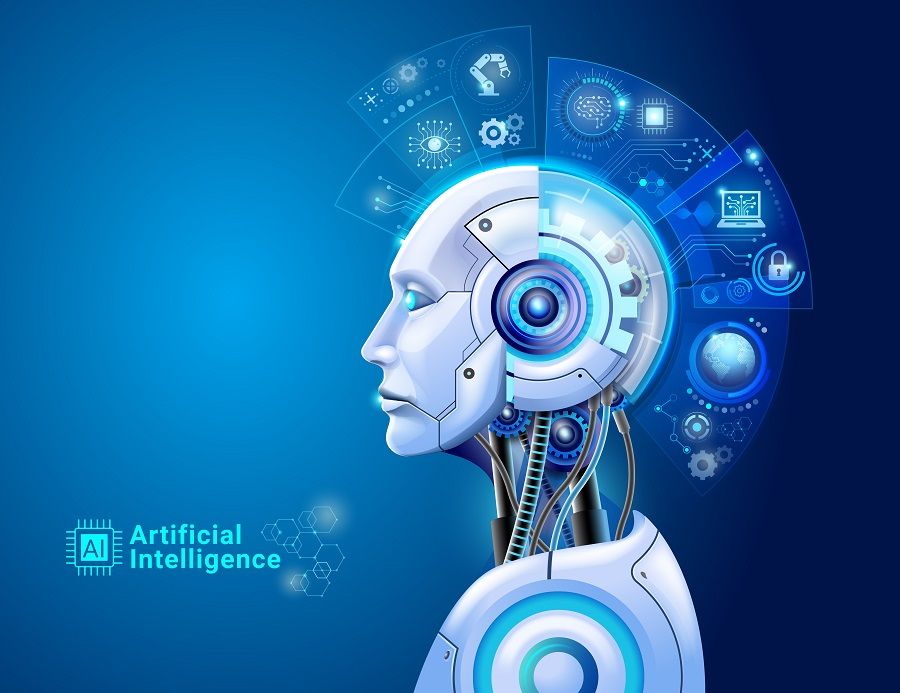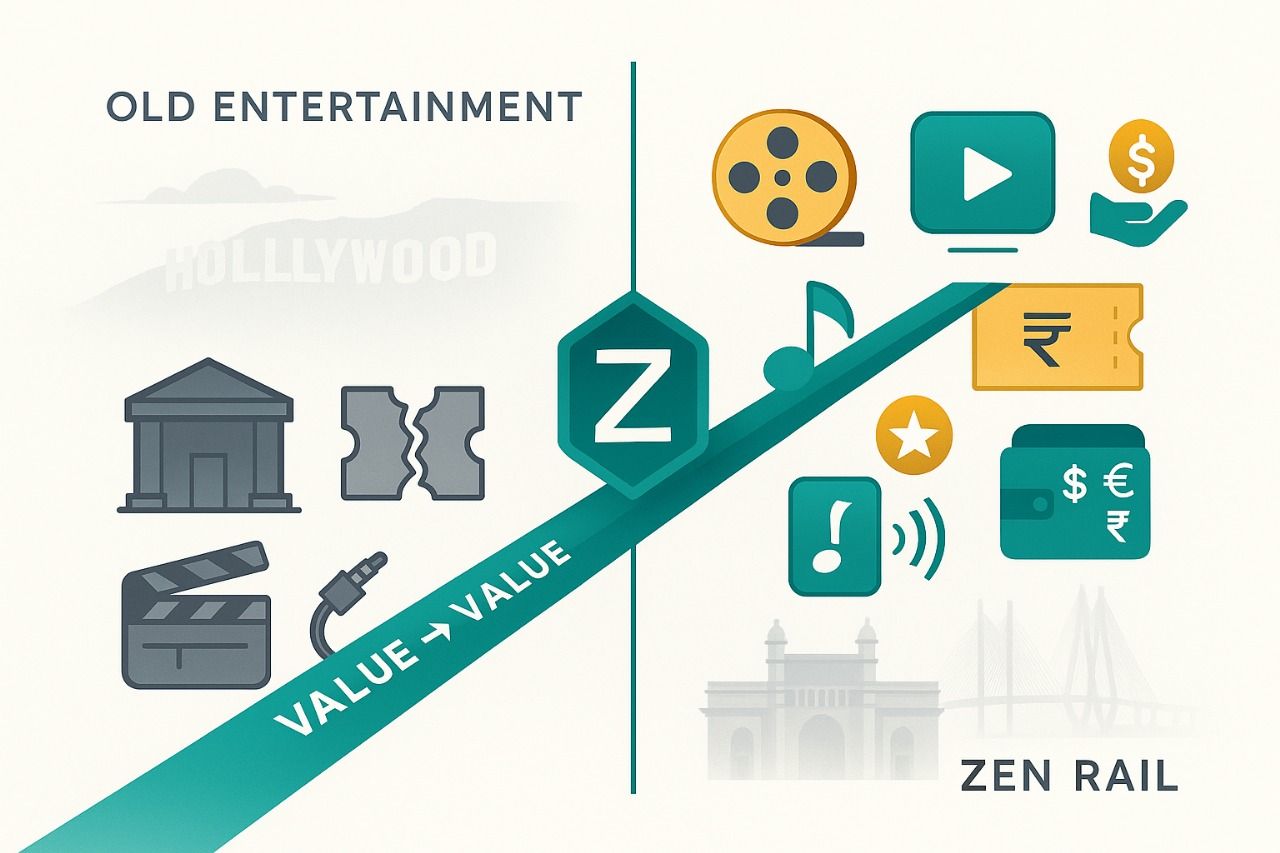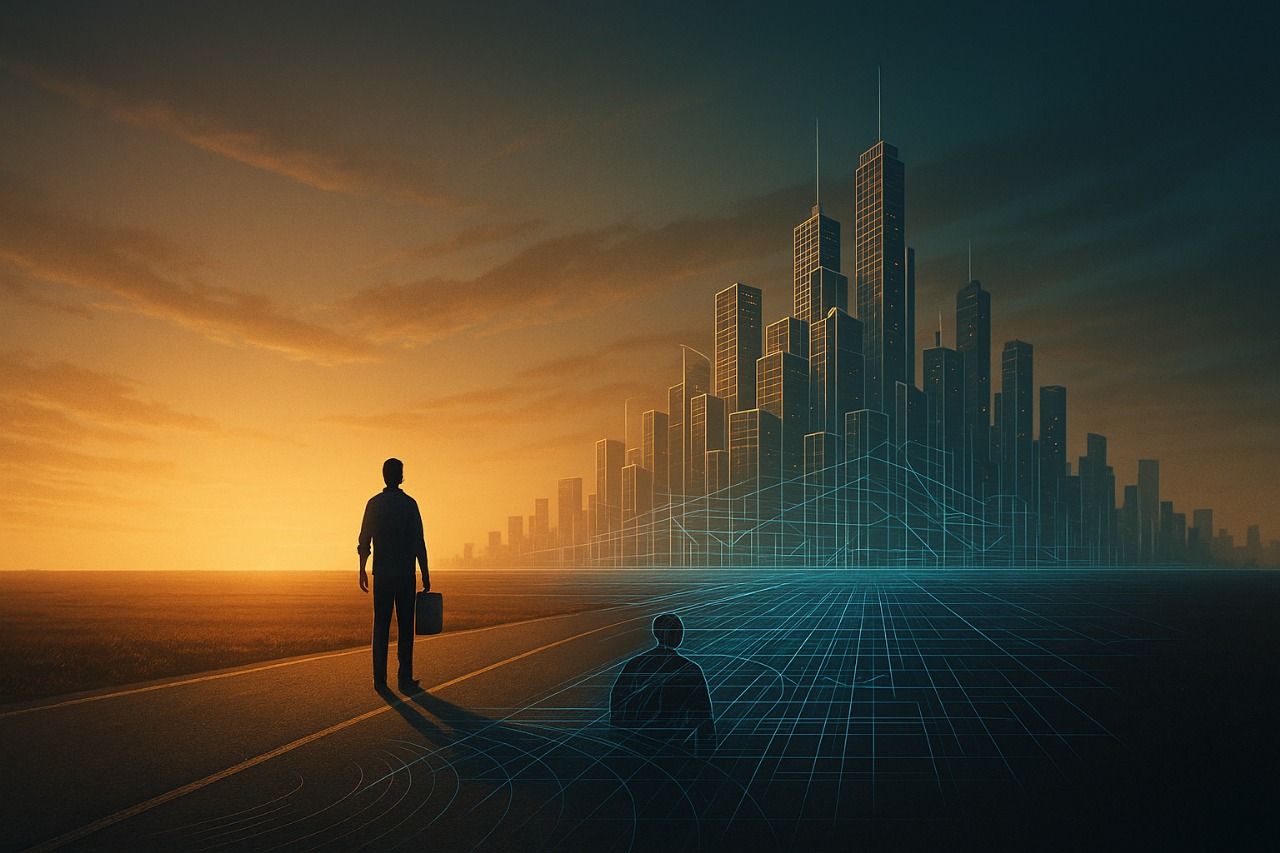
If you haven’t heard of ChatGPT - the AI text generator that’s taken the internet by storm - then you must have been living under a rock for the past couple of months. They range from sophisticated text programs to visual-based software like Midjourney that can create a new piece of digital art in seconds.
But what’s not surprising is that these AI programs are upending everything we thought we knew about digital marketing - including the aspect of branding.
With ChatGPT, for example, it’s now possible to create anything from a branded Instagram caption to an SEO article to a social media posting schedule - all in seconds, using prompts typed in by the user. The visual-based AI software works much the same way.
Imagine being able to generate advertisement spreads, key art, and copywriting for your rebranding campaign, each in less than a minute. Now, imagine the speed with which you could develop a whole new brand. You can literally do it in less than a day using AI.
But there are also other, darker implications of this seeming AI takeover of branding. And with those implications come important questions.
How, for example, will consumers respond to branding materials that were generated by an AI, not a human? And what are the ethics of using these types of software? Are the products they create 100% original, or are they plagiarizing pre-existing content that was typed or rendered by uncredited human hands?
I’ll explore those questions and more in the rest of this article.
What Is An AI Generator?
Before we can understand while AI generators are having such a huge effect on branding, we have to understand what an AI generator is.
First, let’s go over the term “AI.” This is an acronym for “artificial intelligence,” which refers to computers and/or computer programs that are designed to be capable of performing complex operations that were previously only achievable by human beings.
That’s the idea behind ChatGPT, which is expected to have gained more than 100 million active users by the end of January 2023. Simply enter a prompt for any kind of text-based content, and the AI operating in the background of that program will generate the content for you - typically in just a few seconds. (This same principle applies to AI image and art generators, as well.)
What makes the AI generators that have recently risen to fame so remarkable is that they have the capacity to produce complex content of more than decent quality. The level of sophistication is often such that it’s not always apparent that the text or image was generated by a computer program instead of a human.
Potential Impacts Of AI On Branding
Obviously, something that can produce sophisticated content with such a fast turnaround is going to impact the way that business owners and marketers approach branding in the future. Let’s take a look at some of those potential impacts.
1. Heightened Risk Of Plagiarism
How is it that a given AI knows how to generate various types of complex content?
To understand that, you must know the way that AI learns, which is by taking in immense amounts of data. This data can come from anywhere, even the internet.
This presents a problem to marketers who want to use AI to generate new branding materials: the content that is being generated may not be 100% original. Thus, it is incumbent on the user to check the content for plagiarism before they use it themselves.
Takeaway: If marketers and business owners are going to utilize AI generators to create branding materials, they’re going to have to be more careful than ever that they do not directly copy the content produced by the AI. Otherwise, they could open themselves up to serious legal trouble with plagiarism.
2. Decreased Brand Uniqueness
Since the AI in AI generators learns from pre-existing data on the internet, we can also assume that there is always a chance that any content that you ask it to produce is very similar to another brand’s work. Thus, one potential pitfall of using AI generators for branding is that your brand could end up looking a lot like (if not almost identical to) another business - and therefore, not unique.
A decrease in brand uniqueness can cost you dearly. For example, if any of your target customers realize, even subconsciously, that they’ve seen your brand identity, voice, or values before, they may perceive you as a cheap facsimile or a copycat. This may cause them not to trust your brand as much and refuse to buy from you.
A brand that’s not unique is also not sustainable in the long term. This is because it’s hard to generate interest from stakeholders when you can’t differentiate yourself from your competitors.
Takeaway: Similar to how you should check any AI-generated content for plagiarism, you should also ensure that it is unique. This will help your brand stand out from your competitors, both in terms of the value you’re bringing to the market and in the public perception of the high, curated quality of your brand.
3. Increased Customer Awareness Of AI
Speaking of customers, one thing that we have little data on so far is how customers are going to respond to the inevitable use of AI in branding. Will they be able to distinguish an ad that was created almost entirely using an AI program from one that was designed by a human from scratch?
In some cases, maybe not. In one instance of a survey by Tidio (a SaaS that utilizes AI chatbots), 87% of respondents misidentified an AI-generated image as a real life photo.
But in other instances, they spotted the fake right away, especially when it came to identifying AI-generated text.
Sometimes the specificity of the prompt is what determines the AI’s accuracy. For example, for the purposes of Tidio’s article, they requested that an AI generate an image of a cat’s head. The head looks quite accurate to real life; but once Tidio requested the AI to create a “complete cat,” the results were an amalgamation of cat bodies and their potential positions. It was a complete mess.
The lesson here is that the less careful you are with your prompts and with editing AI-generated content, the more likely it is that your target customers will suspect that your branding was made by a computer program. They’ll see it in the little ticks and inaccuracies, the flaws in the text or the ad that make it seem robotic, false, and not human-like.
Who would trust a brand that would churn out all their ads, social media posts, logos, and other materials through an AI without checking it for errors? Would you? I’m betting the answer is, “No.” And with the rise of AI in marketing and other aspects of customer engagement, you can bet that consumers are going to get better at determining what’s real and what’s not.
Takeaway: While AI is getting better at producing realistic content, errors are still apt to slip in. These errors, if not spotted and fixed, are dead giveaways that your branding materials were generated by a computer program. As such, they could ruin your credibility and trustworthiness in the eyes of your target consumer base.
4. Faster Branding Creation
Even if businesses can’t use AI-generated content as-is (for quality as well as copyright reasons), they can always use it as a springboard for developing more unique ideas. Thus, AI has the potential to speed up the ideation phase, which may in turn lead to faster branding creation. This is particularly helpful for developing marketing campaigns that are centered on current and predicted trends, in order to capitalize on the trends’ virality before they age out.
Takeaway: AI generators enable businesses to develop new branding materials and marketing campaigns quicker by producing concepts and ideas to work from.
5. More Widespread Accessibility To Branding Tools
Perhaps the greatest impact that AI will have on branding is how it makes marketing and building a brand identity and brand awareness more accessible. Startups and small businesses with either a low or zero budget for digital marketing will find it much easier - and cheaper - to build their brand when they have AI tools to help them.
Takeaway: AI has its most positive effect on entrepreneurs, startups, and small businesses by enabling them to develop branding materials on a low budget.
4 Ways To Keep Up With AI In Your Future Branding
Without a doubt, AI will have many effects on the future of branding. But while those effects rapidly unfold, how can we, as business owners as well as marketers, prepare to keep up?
Here are 4 tips to follow to maximize your ability to adapt and thrive in a world of AI-driven branding.
_1. Use AI To Optimize, Not Replace, Branding Strategies _ Don’t start throwing out all your tried-and-true branding strategies just because there’s a revolutionary new technology being implemented in your field. Remember that we don’t know for sure to what extent AI will impact digital marketing.
Until we do, I recommend using AI generators to optimize - not replace - your current branding methods. Use it to ideate, develop concepts, generate SEO keywords, etc., but don’t let the results be the final product.
_2. Be Prepared To Heavily Edit _ Your editing skills will need to be sharper than ever when you’re using an AI generator.
For text-based content, you’ll need to watch out for grammatical errors, robotic tone, repetitive words, and outright plagiarism. For images and artwork that is AI-generated, you’ll need to look for flaws (both obvious and subtle) such as unnatural variations in shapes, colors, and patterns, and of course - I’ll say it again - plagiarism.
_3. Keep Putting Stakeholders First _ At the end of the day, your stakeholders are still the heart of your business. While AI can be used to inspire and conceptualize, it shouldn’t replace your human employees, nor should it completely remove real human interaction with your customers from the equation.
By always putting your stakeholders first, you’ll be able to use AI without losing sight of what makes your business great in the first place: the people involved in it.
_4. Prioritize Human-Based Branding Strategies _ While you use AI to streamline the creation of branding materials, you can start directing the time, money, and energy you’re saving in that area toward branding strategies that are more human-based. For example, you can start dedicating those freed up resources to community outreach, paper advertising, or brand architecture. In this way, AI can help your business grow and scale.
Conclusion
The future of AI generators and how they will impact branding is not entirely certain. But what is certain is that changes are coming. The question now is, how will you integrate AI into digital marketing for your business? I hope the tips I shared above will help you find your way forward.
Related Read: Slaying Giants with Great Branding: How to Outmaneuver the Goliaths in Your Industry




